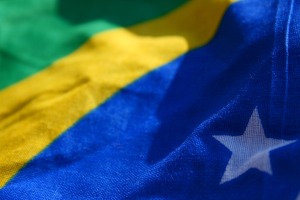 Brazil has grown in confidence over the last two years regarding its formerly unknown status as a world power outside of Latin America. Brazil shared its influence with the US during internal troubles in Honduras and was one of the key sources of aid after the quake in Haiti. Brazil also involved itself in the Middle East by placing itself in between the US and Iran in order to create a resolution to Iran’s nuclear situation in association with Turkey to form an amicable solution that would repel the Americans and Europeans from taking a hard stance on Iran’s nuclear program. As recently as last week, Brazil has taken a move away from its BRICS acquaintances and American counterparts by pushing to assist the EU with its financial issues by buying European Bonds, its BRICS counterparts did not support this idea in any form. This week Brazil surprised China, the US and all other concerned parties by pushing a policy in the WTO for actions to be taken against countries that devalue their currency to artificially increase exports. As expected, the US and China do not support this measure.
Brazil has grown in confidence over the last two years regarding its formerly unknown status as a world power outside of Latin America. Brazil shared its influence with the US during internal troubles in Honduras and was one of the key sources of aid after the quake in Haiti. Brazil also involved itself in the Middle East by placing itself in between the US and Iran in order to create a resolution to Iran’s nuclear situation in association with Turkey to form an amicable solution that would repel the Americans and Europeans from taking a hard stance on Iran’s nuclear program. As recently as last week, Brazil has taken a move away from its BRICS acquaintances and American counterparts by pushing to assist the EU with its financial issues by buying European Bonds, its BRICS counterparts did not support this idea in any form. This week Brazil surprised China, the US and all other concerned parties by pushing a policy in the WTO for actions to be taken against countries that devalue their currency to artificially increase exports. As expected, the US and China do not support this measure.
Brazil is seen as having two different personalities as the new kid on the world stage. In a negative light, many criticise Brazil as losing international clout before reaching its full state of international influence by pushing certain policies that do not have the fuel to be carried into fruition. A possible result of alienating certain powers in the Middle East, or promoting policies that may be seen as being in direct confrontation with some of the other BRICS might do more to rupture ties between the BRICS and Brazil’s traditional economic partners than to promote future gains when Brazil will be at the pinnacle of its strength. Tying itself with countries like Turkey, that is in a process of moving away from the EU and American initiatives in the Middle East, may put Brazil in a situation where other countries actions could pull it into a situation and a region that gives Brazil little benefit, with great costs.
Choices and benefits are not solely positive for the US or EU, as many of their choices could be criticised as being as poor or as those taken by Brazil or any other country. Economic decisions during economic crisis and political decisions the US and EU have taken during the Arab Spring are often hotly debated, decisions where Brazil have made positive contributions and have grown because of their proactive approach to global politics. In a positive light, Brazil as a new financial and cultural power with the funds and clout to make moves into regions outside of its own might earn Brazil the respect it has accrued within Latin America and place it on the world stage. Brazil has been able to maintain its position as a powerful middle of the road negotiator between the two political forces within Latin America, and would do well to hold this position outside of the region. While helping the EU or creating a more balanced trade relationship may be in the best interests of Brazil, a careful approach in the Middle East might be best in order to not alienate itself from the Europeans or Americans, or from new leaders coming out of the Arab spring that are often in violent opposition to current leaders from Algeria to Iran. Brazil, like all nations, have the right to work towards their best interests, but the discussion on how to approach the international community should be discussed seriously within Brazil amongst all Brazilians of all political stripes. Mistakes will surely be made, but Brazil will never intentionally place itself in a losing position or maintain a negative posture, as the risks are not worth the loss of a powerful future Brazil.